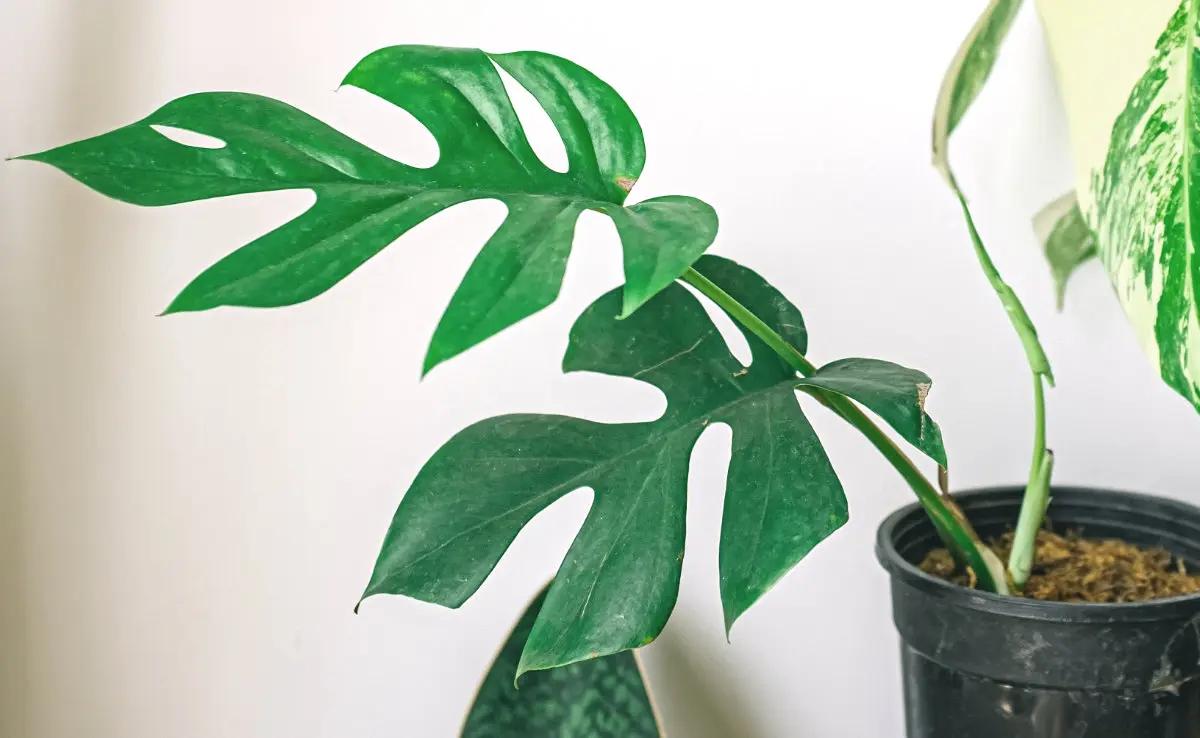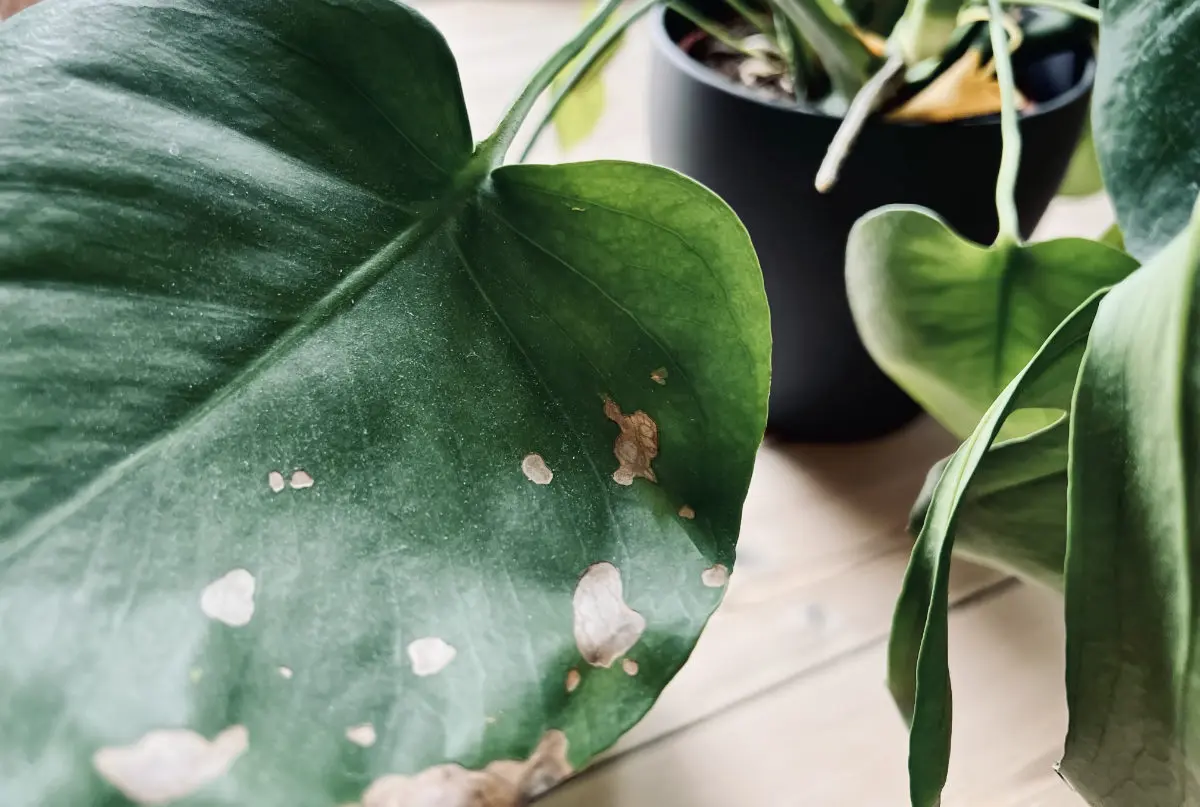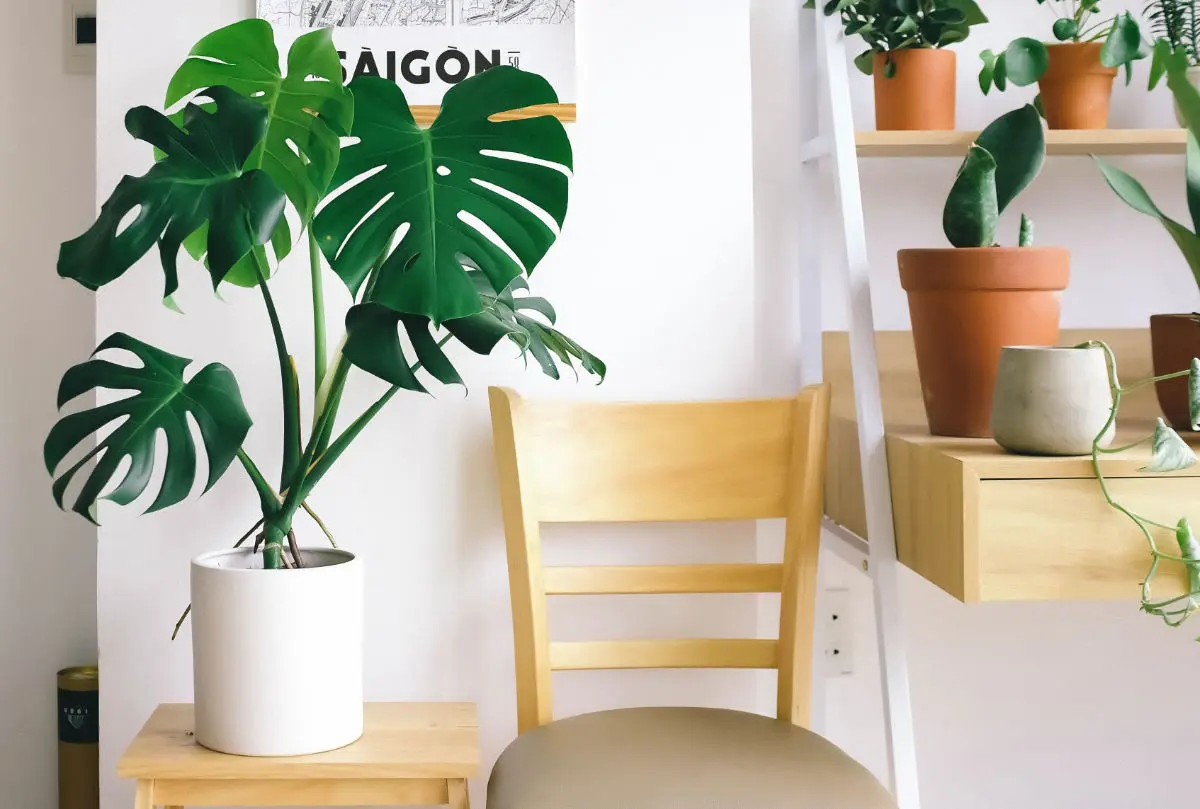Monstera Soil Mix: The Ultimate Guide
The right soil mix can make all the difference in the health and growth of your Monstera plant. Learn about the best soil mix for Monstera and how to create it yourself with this helpful guide.
By Tobias Holm
Welcome to the ultimate guide on creating the perfect Monstera soil mix for your beloved plants! If you're a plant enthusiast or a beginner looking to enhance your indoor gardening skills, you've come to the right place.
Monstera plants, with their iconic tropical leaves and unruly vines, have become a popular choice for plant lovers around the world. But to ensure their optimal growth and vibrant foliage, it's crucial to provide them with the right soil mix.
In this detailed guide, we will explore the essential components of a Monstera soil mix, including the ideal soil type, organic matter, drainage, and pH levels. We'll also delve into the importance of proper watering and fertilization techniques to help you create an environment where your Monstera plants can thrive.
So, let's roll up our sleeves and dive into the world of Monstera soil mix to unlock the secrets of healthy and happy plants!
Importance of soil mix for Monstera plants
Monstera plants are known for their large, lush leaves and their ability to create a tropical feel in any space. However, to achieve the best results with your Monstera plants, it's crucial to understand the importance of a well-balanced soil mix.
The right soil mix provides the necessary nutrients, aeration, and drainage for the roots to grow and thrive. It also helps prevent root rot and other soil-related issues that can hinder the overall health of your plants. By investing time and effort into creating the perfect soil mix, you'll be setting your Monstera plants up for success and ensuring their long-term well-being.
When it comes to Monstera plants, the soil mix plays a vital role in their overall growth and development. A healthy soil mix provides a stable foundation for the plants, allowing them to absorb nutrients efficiently and establish a strong root system.
Additionally, the right soil mix ensures proper water retention, preventing overwatering or underwatering issues that can be detrimental to the plants' health.
By understanding the needs of Monstera plants and creating a suitable soil mix, you can create an environment where your plants can flourish and thrive.
Creating the perfect soil mix for your Monstera plants may seem daunting, but with the right knowledge and guidance, it can be a rewarding experience. In the following sections, we will explore the essential components of a Monstera soil mix and provide you with a step-by-step guide to help you create an optimal environment for your plants to thrive.
Components of a perfect Monstera soil mix
To create the perfect soil mix for your Monstera plants, it's important to understand the essential components that make up a well-balanced and nutritious medium for their growth.
Here are the key components you should consider:
- Well-draining soil: Monstera plants prefer soil that drains well to prevent waterlogged roots, which can lead to root rot. A mixture of well-draining soil, such as a combination of potting mix and perlite or orchid bark, promotes healthy root growth and allows excess water to drain away.
- Organic matter: Adding organic matter to your soil mix provides essential nutrients and improves soil structure. Compost, aged manure, or coconut coir are great options for incorporating organic matter into your Monstera soil mix. They help retain moisture, improve aeration, and support beneficial microbial activity in the soil.
- Perlite or pumice: These lightweight additives improve drainage and aeration in the soil mix. They create air pockets that allow the roots to breathe and prevent soil compaction. Adding perlite or pumice to your soil mix helps create a well-structured medium that promotes healthy root development.
- Sphagnum moss: Sphagnum moss is a versatile component that can help retain moisture in the soil mix while still allowing for proper drainage. It also provides beneficial microbes and helps create a favorable environment for root growth.
When combining these components, aim for a well-balanced soil mix that is loose and well-draining, yet retains enough moisture for the plants to thrive.
Experimenting with different ratios of these components can help you find the perfect mix that suits your Monstera plants' needs.
Step-by-step guide to creating the perfect Monstera soil mix
Now that you understand the importance of a well-balanced soil mix and the essential components it should contain, let's dive into a step-by-step guide to help you create the perfect Monstera soil mix for your plants:
- Gather your materials: Collect all the necessary components for your soil mix, including well-draining soil, organic matter (such as compost), perlite or pumice, and sphagnum moss.
- Prepare the base soil: Start by preparing the base soil, which should be a well-draining potting mix. You can use a pre-made potting mix or create your own by combining equal parts of peat moss, vermiculite, and perlite.
- Add organic matter: Mix in a generous amount of organic matter, such as compost or coconut coir, to the base soil. This will provide essential nutrients and improve moisture retention.
- Incorporate perlite or pumice: Add perlite or pumice to the soil mix to improve drainage and aeration. Aim for a ratio of approximately 1 part perlite or pumice to 3 parts soil mix. Mix thoroughly to ensure even distribution.
- Include sphagnum moss: Finally, add a layer of sphagnum moss on top of the soil mix. This will help retain moisture and create a favorable environment for root growth.
Once you've created the perfect Monstera soil mix, you're ready to pot your plants and watch them thrive in their new, nutrient-rich environment.
Remember to monitor the moisture levels and adjust your watering schedule accordingly to ensure optimal growth.
Tips for maintaining the ideal soil conditions for Monstera plants
Creating the perfect soil mix is just the first step in ensuring the optimal growth and health of your Monstera plants.
To maintain the ideal soil conditions, consider the following tips:
- Watering: Monstera plants prefer moist soil but are susceptible to root rot if overwatered. Instead of following a strict watering schedule, check the moisture levels in the soil by inserting your finger about an inch deep. If it feels dry, it's time to water. Adjust the frequency of watering based on the specific needs of your plants and the environmental conditions.
- Fertilization: Monstera plants benefit from regular fertilization to provide them with the necessary nutrients for growth. Use a balanced, slow-release fertilizer, or opt for organic alternatives such as compost tea or fish emulsion. Follow the manufacturer's instructions for application rates and frequency.
- Temperature and humidity: Monstera plants thrive in temperatures between 65-85°F (18-29°C) and prefer high humidity levels. Consider using a humidifier or misting the leaves regularly to increase humidity in drier environments. Avoid placing your plants near drafty windows or air conditioning vents, as they can cause temperature fluctuations that can stress the plants.
- Light requirements: Monstera plants thrive in bright, indirect light. Place them near a window with filtered sunlight or use sheer curtains to diffuse direct sunlight. Avoid exposing your plants to intense, direct sunlight, as it can scorch the leaves.
By following these tips and maintaining the ideal soil conditions, you'll be providing your Monstera plants with the best possible environment for healthy growth and vibrant foliage.
Common mistakes to avoid when creating Monstera soil mix
While creating the perfect soil mix for your Monstera plants is relatively straightforward, there are a few common mistakes you should avoid to ensure the best results:
- Using heavy, compacted soil: Monstera plants prefer loose, well-draining soil. Avoid using heavy soils that retain too much moisture and can lead to root rot. Instead, opt for a well-balanced mix that promotes proper drainage.
- Overwatering: Overwatering is one of the most common mistakes when it comes to caring for Monstera plants. Remember to check the moisture levels in the soil and adjust your watering schedule accordingly. Allow the top inch of soil to dry out slightly before watering again.
- Neglecting to incorporate organic matter: Organic matter is essential for providing nutrients and improving soil structure. Neglecting to add organic matter can result in nutrient deficiencies and poor drainage. Ensure you incorporate compost or coconut coir into your soil mix.
- Ignoring temperature and humidity levels: Monstera plants thrive in specific temperature and humidity ranges. Ignoring these factors can result in stunted growth or leaf damage. Pay attention to the environmental conditions and make adjustments as necessary.
By avoiding these common mistakes and following the guidelines outlined in this guide, you'll be well on your way to creating the perfect soil mix for your Monstera plants.
Alternative soil mix options for Monstera plants
While the components mentioned earlier provide a well-balanced soil mix for Monstera plants, there are alternative options you can explore based on your preferences and availability of materials.
Here are a few alternatives to consider:
- Coco coir-based mix: Instead of using traditional potting mix, you can create a soil mix using coco coir as the base. Coco coir is a sustainable and renewable alternative to peat moss. It retains moisture well and provides good aeration for the roots.
- Orchid bark mix: If you have access to orchid bark, you can create a soil mix by combining it with perlite or pumice. This mix provides excellent drainage and promotes healthy root growth. It's important to note that orchid bark is slightly acidic, so it may require additional amendments to adjust the pH levels.
- Epiphyte mix: Monstera plants are epiphytic in their natural habitat, meaning they grow on other plants or structures. To mimic their natural environment, you can create an epiphyte mix using ingredients such as tree fern fiber, sphagnum moss, and orchid bark. This mix provides a well-draining medium that closely resembles the conditions in which Monstera plants thrive.
Remember to experiment with different soil mix options and adjust them based on your specific requirements and the needs of your Monstera plants.
By understanding the key components and their roles in the soil mix, you can create an environment that promotes optimal growth and health.
Recommended fertilizers and amendments for Monstera plants
In addition to creating the perfect soil mix, fertilizers and amendments can further enhance the growth and health of your Monstera plants.
Here are a few recommended options:
- Balanced, slow-release fertilizer: A balanced fertilizer with equal proportions of nitrogen (N), phosphorus (P), and potassium (K) is a good choice for Monstera plants. Look for a slow-release formula that provides a steady supply of nutrients over time. Follow the manufacturer's instructions for application rates and frequency.
- Organic fertilizers: If you prefer organic alternatives, there are several options available. Compost tea, made from steeping compost in water, provides a nutrient-rich liquid that can be applied directly to the soil. Fish emulsion is another organic option that offers a good balance of nutrients for Monstera plants.
- Amendments for adjusting pH levels: Monstera plants prefer slightly acidic to neutral soil with a pH range of 5.5-7.0. If your soil pH is outside this range, you can use amendments such as dolomite lime or sulfur to adjust it accordingly. Again, follow the instructions on the packaging for proper application rates.
When using fertilizers and amendments, it's essential to follow the recommended application rates and frequency.
Over-fertilizing can lead to nutrient burn or salt buildup in the soil, which can be harmful to your plants.
Regularly monitor the health of your Monstera plants and adjust your fertilization routine as necessary.
Conclusion
Creating the perfect soil mix for your Monstera plants is an essential step in ensuring their optimal growth and vibrant foliage. By understanding the needs of these tropical beauties and providing them with a well-balanced mix of soil, organic matter, and additives, you'll create an environment where they can thrive.
Remember to consider factors such as drainage, moisture retention, and pH levels when creating your soil mix. Additionally, pay attention to proper watering, fertilization, and environmental conditions to maintain the ideal soil conditions for your Monstera plants.
With a little care and attention, your Monstera plants will reward you with their stunning leaves and bring a touch of the tropics into your home.
Happy gardening!

